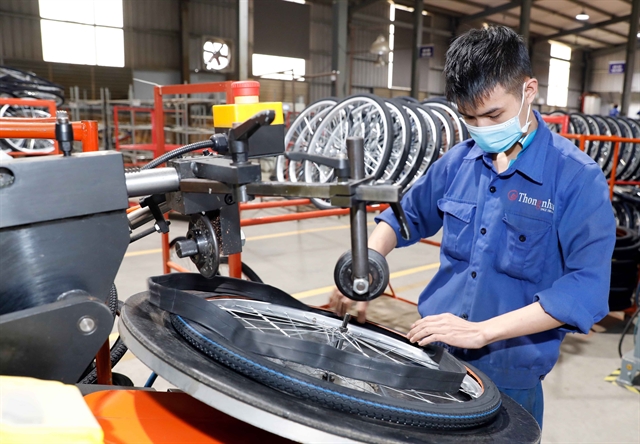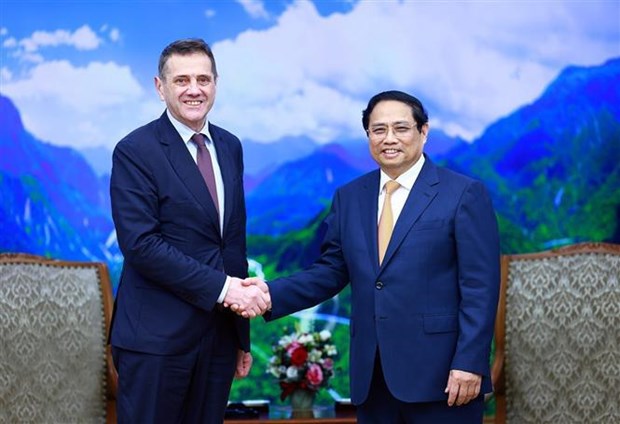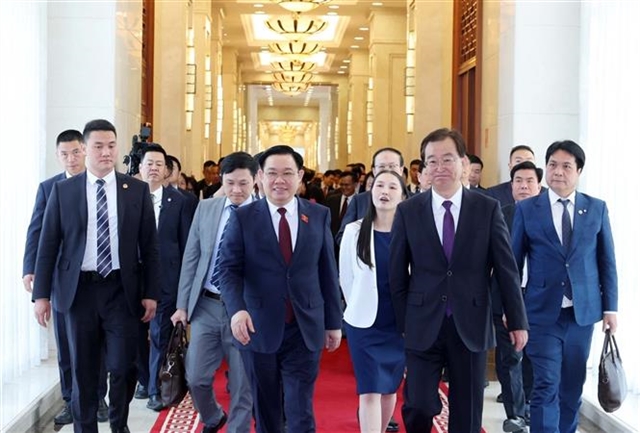

RMIT University’s Vice-Chancellor and Vietnam’s major recruiters gathered on Tuesday at RMIT University Vietnam’s Future of Jobs in Industry 4.0 event to discuss trends and disruptions shaping the future world of work.
Ho Chi Minh City, 22 August 2019
RMIT University’s Vice-Chancellor and Vietnam’s major recruiters gathered on Tuesday at RMIT University Vietnam’s Future of Jobs in Industry 4.0 event to discuss trends and disruptions shaping the future world of work.
RMIT Vice-Chancellor and President Martin Bean CBE spoke to the critical importance of lifelong learning to help students navigate a changing landscape of multiple careers with numerous employers. He encouraged students to think about their careers as a portfolio of work, and of their knowledge and skills as currency.
“We’re in a new world where we need to learn across our lifetime and develop our own knowledge portfolio that represents our whole self to the world of work,” he said.
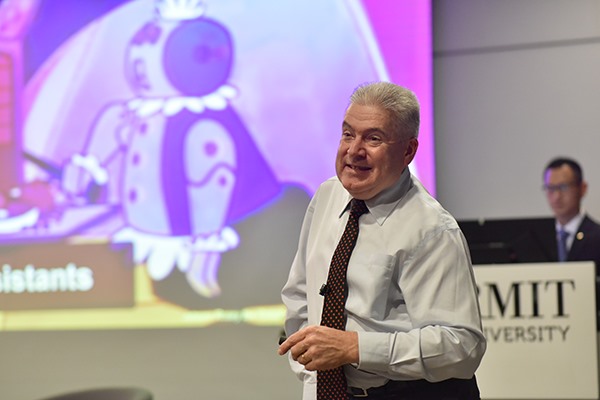
|
RMIT Vice-Chancellor and President Martin Bean CBE discussed trends and disruptions shaping the future world of work.
RMIT’s expertise is in mapping future work requirements, emerging employer trends and the skills in demand needed to thrive. The Vice-Chancellor will be leveraging the University’s unique position and understanding of future skills to feed into key policy discussions in Hanoi over the coming days.
Advice and the latest views were provided from Navigos Group, Nielsen Vietnam, Michael Page Vietnam, and RMIT University as the panel discussed how jobs are evolving, transforming and even disappearing.
The International Labour Organization reports that 70% of jobs in Vietnam are at high risk of being replaced by other jobs that may not have even been conceptualised yet. The digitisation of traditional industries is evident in Vietnam, particularly in manufacturing which is being transformed by new technologies to create fresh opportunities in Industry 4.0.
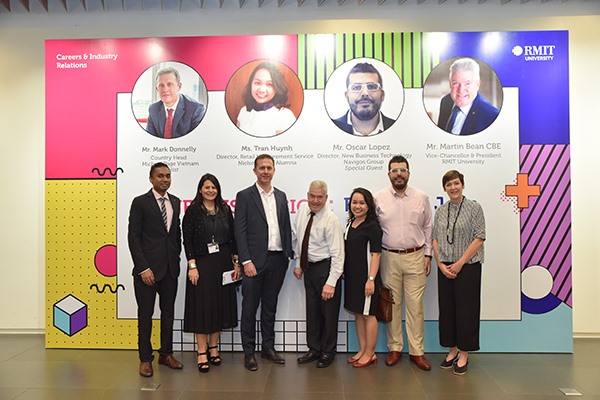
|
RMIT Vice-Chancellor and President Martin Bean CBE (middle) with the panellists and management board of RMIT.
Panellists discussed the growing demand for employees to have a comprehensive subject knowledge, a suite of ‘soft skills’ and the agility to adapt and re-skill throughout their career.
Reports from Deloitte and PwC predict two out of three jobs will be soft skills intensive by 2030, leveraging the skills that automation is unable to replicate.
Director of Product and Engineering at Navigos Group Oscar Lopez said new jobs are being created while others are disappearing, and this is both challenging at exciting all at once.
In order to prepare for Industry 4.0, Mr Lopez suggested students “make peace with technology, practice a growth mindset, improve their agility, and keep themselves updated.”
Retail Measurement Services Director at Nielsen Vietnam and RMIT alumna Huynh Bich Tran, focused on the soft skills that students should embrace.
“Hard skills can be built depending on a particular job, but there are three soft skills that all students need to adopt,” she said.
“Apart from ‘traditional’ soft skills like communications or teamwork, students also need to have the ability to adapt with changes, and have a collaborative growth mindset,” she explained.
RMIT University is particularly cognisant that the disruption in education is happening right now, which can be seen in the uptake of education from non-traditional providers including Coursera, Udemy, and Udacity by a broadening range of learners.
“These platforms are educating tens of millions of people, and the profiles of these people are not just the classic 18 to 24-year-old student demographic,” the Vice-Chancellor said.
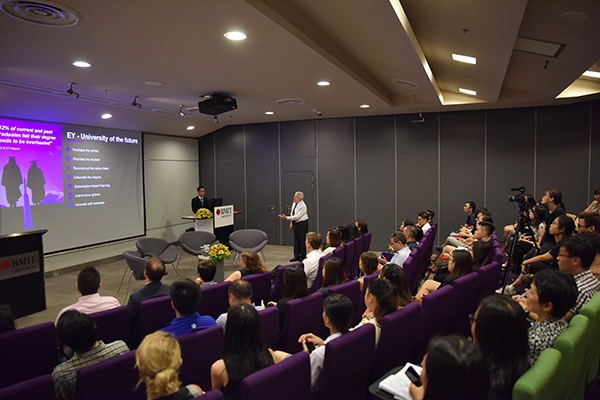
|
RMIT is leading the way when it comes to embedding opportunities for continual re-education and the acquisition of future skills as part of a lifelong education.
“They are people who have said I need to learn for life. I’m willing to continue to learn, to get the evidence I need, and the digital badges I need to populate my portfolio of work, so I can demonstrate to employers that I have not stood still.”
The Vice-Chancellor said RMIT is leading the way when it comes to embedding opportunities for continual re-education and the acquisition of future skills as part of a lifelong education.
“Our microcredentials are being embraced by students allowing them to formally recognise the life skills and competencies alongside degree learning,” he said.
“We’re supporting the shift from certificate to portfolio learning by partnering with industry and giving everyone a way to come back and top up their skills.”





